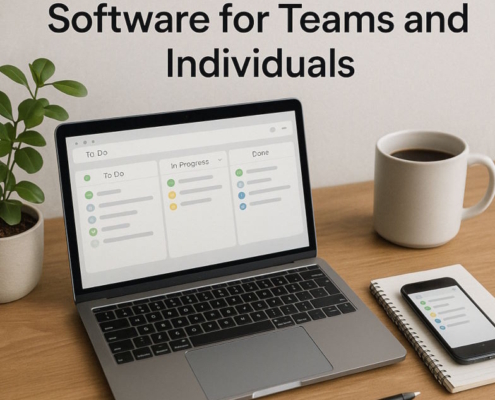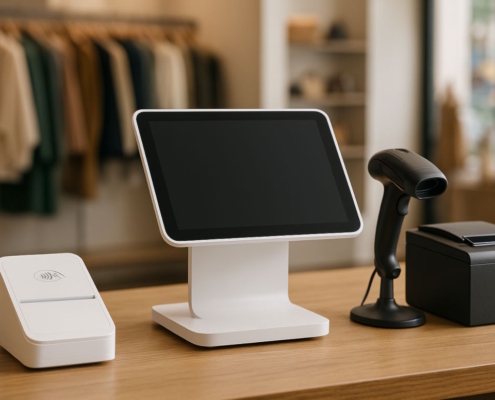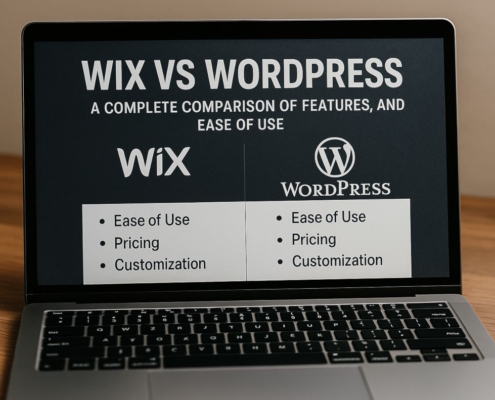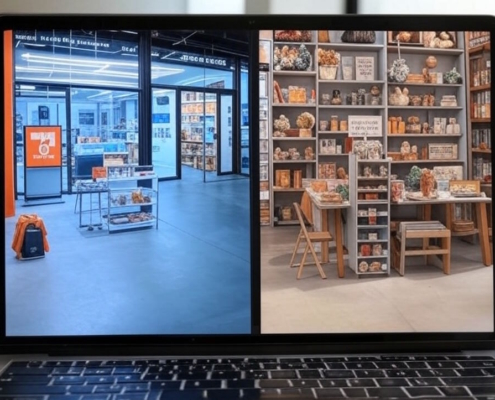Introduction
It is predicted that by 2026, payment methods other than cash will be used for over eighty percent of purchases made in the United States. Digital payment transaction amounts are also projected to increase by over fifteen percent between 2024 and 2028.
Payment gateways can aid both customers and businesses by streamlining and speeding up payments in an expanding paperless environment where credit card and digital transactions predominate.
A merchant service called a payment gateway is used by conventional brick-and-mortar establishments as well as e-commerce websites to handle credit card payments. In a digital transaction, they can be compared to the cash drawer in a metaphor.
It must be convenient and safe, however, just like any other cash register. It is essential to comprehend payment gateway functionality, requirements, and choices available before choosing one.
How do payment gateways operate?
Regardless of whether you are shopping online or in person, a payment gateway serves as the hub of the payment processing network.
In a transaction, the front-end system gathers, sends, and approves customer data in actual time to the bank of the merchant, after which the transaction is executed.
Primary payment gateway types
Generally speaking, payment gateways come in three varieties:
On-site payments
Big companies usually use on-site payments managed by their own servers, where the processing of payments and the checkout procedure are entirely managed by your system.
You will now have greater authority and responsibility, therefore the advantages have reversed.
Every factor matters if you manage payments on-site, and every enhancement to the customer experience can have a significant impact on your revenue, particularly for retailers with a significant amount of sales.
Payment off-site, checkout on-site
With this strategy, the payment processing takes place at the back end of the gateway, but the front-end checkout still takes place on your website.
This technique, like redirected payment gateways, can streamline payment procedures while guaranteeing higher levels of back-end security.
The drawback, though, is that you won’t have complete control over the user’s experience when using the payment gateways. Make sure you are comfortable with the payment gateway’s security before choosing this course of action.
Redirects
Redirects frequently come with choices for different ways to pay, like a business permitting PayPal use. Redirects occur when a gateway sends a client to a PayPal checkout page in order to finish the transaction.
Utilizing a redirect gateway, a small firm can benefit from the security and convenience of a more expansive platform. The retailer benefits from redirects since they are straightforward, but customers must take an additional step and the merchant loses some control.
Limitations of payment gateways
Payment gateways aren’t created equally. You must be aware of and willing to accept some restrictions when selecting a payment gateway, many of which are a part of the infrastructure of the payment gateway.
For further information, take into account the following:
Not every kind of card or payment is accepted by every gateway
Even while a lot of payment gateway companies like to tout how global their gateways are, they usually don’t point this out when there are particular card issuers and payment portals that they are unable to take payments from.
Make sure you are aware of the requirements, restrictions, and exclusions for your clients before choosing a payment gateway.
There might not be a payment option available to customers from abroad
Businesses hoping to reach a large global customer base must make sure the payment gateway is compatible with a variety of e-commerce sites and payment platforms. For instance, Alipay is far more common in China than other payment methods that US consumers may be familiar with.
Prices may also be higher for shoppers from other countries. While numerous payment gateway providers have set transaction costs for both local and international transactions, some charge extra for transactions that cross borders.
Take into account products such as Webinterpret, which can be integrated with your online store and offer a completely customized international checkout experience that lets you take payments in twenty-five different currencies.
Security lapses
Security needs to be the top priority in our increasingly digital environment. A recent study found that almost two-thirds of customers would no longer purchase at a store that had experienced a security breach.
You should be aware of the following security flaws even though a top-notch payment gateway ought to be safe:
- Data breaches: Although most payment gateways use TLS encryption to protect sensitive processing data, such as credit card numbers, the server hosting the data is still vulnerable.
- Payment difficulties on mobile devices: It’s possible that you have some control over transaction security, but you still have no idea who has access to your client’s mobile device.
- Malware: User accounts can be compromised by malware that scans passwords and sends what appear to be genuine transactions via secure payment channels, even though the transaction is a scam.
Selecting a safe payment gateway
Security is the most important factor to take into account when choosing a payment gateway, out of all.
A recent Experian survey indicates that fifty-five percent of consumers rank security as the most crucial element of their experience on the internet, and 49% of consumers want to see organizations’ online security policies more clearly displayed.
Make sure you’re using a safe payment platform by checking the answers to the following queries:
Which methods of payment do your clients employ?
What methods of payment are your consumers currently using? This is one of the most important things you must ask.
You’ll encounter fewer issues and possible security hazards if you layer your payment channels and provide a payment form they can utilize.
Does the payment gateway work with the technologies you already have?
It is imperative that you take into account a payment gateway’s API compatibility and integration with any existing technology systems you use before choosing one. Selecting a gateway that is distinct from your offerings will only exacerbate your workflow and cause payments to lag.
There are plenty of customizable gateways out there that are simple to set up with the platform of your choosing. You and your clients’ lives will be easier if you choose one of them.
How much does the payment gateway charge?
Fraud involving e-commerce might increase your expenses. It may not be worth the effort if the sum that you invest in fraud detection and extra security issues exceeds the reduced expenses of a payment gateway.
Think about your security expenses and the price associated with your payment gateway.
How safe is the encryption they use?
You should collaborate with PCI-compliant businesses to guarantee secure encryption. One set of guidelines designed to maintain security requirements for the digital age is the PCI DSS (Payment Card Industry Data Security Standard).
Verify that a gateway still complies with PCI regulations before activating it. The purpose of these guidelines is to safeguard payment information and client data.
What is their track record?
It is vital to utilize a payment gateway that is trusted by customers, as about 50% of them want to see apparent security marks while checking out.
Prevent clients from leaving their shopping carts and visiting other, visibly secure websites by avoiding payment gateways with a less than exceptional security history.
Prioritize well-known, sizable payment gateway companies like PayPal, Apple Pay, and Amazon Pay. Due to its ability to emphasize security and entice customers to keep purchasing, this brand recognition serves your advantage.
What degree of flexibility does the merchant account offer?
Flexibility is a crucial feature to look for within a payment gateway because of the variety of shopper kinds and available payment alternatives.
For today’s consumer, being able to quickly purchase items by switching between credit cards (like Visa and MasterCard) and mobile payment methods (like Apple Pay and Android Pay) is crucial.
The significance of stacking payment gateways
By stacking payment gateways, a few of these vulnerabilities can be lessened or perhaps completely eliminated.
To optimize the number of purchase alternatives available to customers, the process makes use of several gateways on your site for e-commerce. There are several advantages to this approach, including:
Facilitating your customer’s experience
Enable clients to select what they want, whenever they want it.
You can meet a lot of your needs through payment gateways that accept Visa & MasterCard, but what about clients who wish to make particular payments from different accounts or who have other cards, like American Express?
Increasing the number of credit card transaction alternatives can result in reduced checkout friction and increased customer convenience.
Give a backup option to every individual
Contrary to popular belief, it is possible to survive with no credit card.
Even though more than eighty percent of adult Americans own a credit card, large segments of the market may still function without one. Alternative payment methods including Apple Pay, Venmo, and PayPal are available to customers for use when making online purchases.
Enabling clients to make secure purchases in whichever way they choose is your responsibility as an online shop.
Examples of Payment Gateways
7 of the most popular payment gateway service companies are listed below:
PayPal
Because PayPal has a great consumer reputation and offers a variety of gateway alternatives, it is widely used as a redirected payment gateway.
With PayPal’s Payflow gateway, you can choose between a service that offers more customized checkout options for a monthly subscription or a complimentary checkout payment platform managed by PayPal.
With both options, PayPal provides free fraud security, giving you added peace of mind that the payment gateway is secure and ready to fend off threats as they materialize.
Square
Square offers both payment gateway services and credit card processing. With a $46 billion gross volume of payments in the fourth quarter of 2021, the company has experienced considerable growth.
Square does charge extra for manual transactions, but their solutions are primarily intended for small businesses that want a way to handle credit cards for transactions in person.
Stripe
A well-known supplier of payment gateways, Stripe specializes in platform-based payments, SaaS, non-profits, and mobile e-commerce.
Large transaction volumes are an additional problem that Stripe can handle for businesses. To run its mobile network with more than 700,000 drivers, Lyft, a ride-sharing firm, employs Stripe.
Apple Pay
Apple has developed a payment gateway solution that facilitates mobile payments by allowing retailers to process payments with Touch ID and Face ID. It primarily targets customers who wish to have an electronic wallet to handle their payments.
Similar to PayPal, a lot of different payment gateways let merchants take Apple Pay payments. Nearly a billion iPhone owners worldwide—more than half of whom use Apple Pay—can make payments to retailers using these services.
Amazon Pay
Amazon has 200 million Prime subscribers globally, making it a popular payment gateway choice. Many businesses have found success with Amazon payments.
Authorize.net
Over 400,000 customers are served by Authorize.net, one of the first payment gateways, which is accessible in over 33 countries.
Retailers may now take payments via PayPal, Apple Pay, and the majority of the main credit cards thanks to Authorize.net’s extensive range of payment platforms and processors.
Adyen
Adyen is designed to be used for both in-person and online transactions, and it takes a variety of payment methods, including credit cards and services like Apple Pay.
Through agreements with companies like Microsoft, Uber, and LinkedIn, Adyen has demonstrated its capacity to manage high transaction volumes.
One Last Word
Your company will be in a better position to select the best solution for your needs & add a new degree of protection that clients require when conducting an online transaction if you have a better understanding of cost, functionality, and gateway security.
So why not go for the most beneficial when you’re eventually choosing that option?
FAQs regarding payment gateways
1. Which payment gateway is the best?
Selecting the optimal payment gateway solution is totally based on your business, the platforms you want to sell from, and the number of channels you want to sell through.
PayPal might be the solution if you run an online business. If your primary work environment consists of actual brick-and-mortar sites, Square might be the best option for you. Braintree can be the greatest option for a startup company.
2. Can foreign payments be processed via payment gateways?
In order to enable businesses to process transactions from clients globally, a large number of payment gateways have the capacity to handle international payments. These gateways manage currency conversions seamlessly and support a number of currencies. They moreover guarantee adherence to global rules and security benchmarks. To find out more about their supported countries, foreign payment options, and any additional costs that can be incurred for cross-border transactions, it is imperative that you contact your particular payment gateway service.
3. What is the effect of payment gateways on transaction fees?
The platform you utilize will determine the fees. Many e-commerce platforms frequently interface with many payment gateways, each of which has a different set of fees. A portion of the sale is taken by some gateways, while others charge a fixed fee for each transaction. The costs charged by well-known gateways such as Stripe, PayPal, and Square differ and are contingent upon your location & transaction volume. Make sure the fees are in line with your budget and business requirements when selecting an e-commerce platform & payment gateway.
4. What distinguishes payment gateways from payment processors?
The debit or credit card details that correspond to a bank account are analyzed and sent to the originating bank by a payment processor.
Along with performing the previously mentioned tasks, a payment gateway also permits the buyer & seller to transfer money.
The entire system at a point of sale, or a virtual cash register, can be thought of as payment gateways. The stage in the procedure that swipes a card and verifies the details with the issuing bank is known as the processor.
A processor, similar to a payment gateway, can process payments entirely through software, or it can combine both a digital & hardware component.
5. Which security characteristics of payment gateways are the most prevalent?
Generally speaking, payment gateways use a number of security measures to safeguard private cash. They include tokenization, which substitutes unique tokens for card numbers, encryption to safeguard data transmission, and PCI DSS compliance, which complies with industry security requirements. Distinctive transactions can be found through the use of machine learning and artificial intelligence in fraud detection. The additional layer of protection during login is provided by multi-factor authentication. Finding and fixing vulnerabilities is done through routine penetration tests and security audits. With these precautions taken together, customers and companies can be sure that payment processing is secure and that no illegal access and breaches will occur to customer data.































